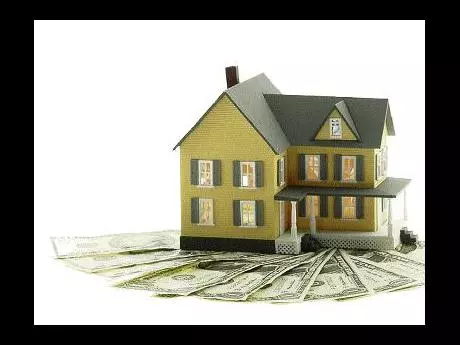
How to reduce your closing costs?
When a property is sold, the transaction is finalized at a meeting between the buyer and seller. This meeting is called the “closing.” In general, most closing costs cannot be waived. Both the buyer and the seller can expect to pay fees at the closing. However, there may be ways to get the fees reduced or even waived when purchasing a home. Buyers can save on closing costs through several strategies: Negotiate with the seller: Ask the seller to cover some or all of the closing costs. This is more likely to be successful in a buyer's market or when the seller is motivated to close quickly. Shop around for lenders: Different lenders offer different closing cost estimates. Compare loan estimates from several lenders to find the best deal. Negotiate with the lender: Some lenders may be willing to reduce or waive certain fees, especially if you have a strong credit history or are bringing a large down payment. Close at the end of the month: This can reduce prepaid interest costs since you only pay interest for the remaining days of the month. Choose a no-closing-cost mortgage: Some lenders offer mortgages that do not require upfront payment of closing costs, but these may come with higher interest rates. Ask for discounts: Some lenders offer discounts on closing costs for certain professions or memberships, so it's worth asking if you qualify for any. Review the closing disclosure carefully: Errors or unexpected fees can sometimes be found and corrected before closing, saving you money. Consider a seller concession: In some cases, the seller may agree to increase the purchase price and offer a seller concession to cover your closing costs. Check for state or local programs: Some states or localities offer programs that can help reduce closing costs for first-time homebuyers or low-income individuals. By being proactive, shopping around, and negotiating, buyers can often reduce their closing costs significantly.

Why Real Estate is a good investment at all times
https://www.entrepreneur.com/ Whether you’re a business owner or concerned about your personal finances, you’ve likely been tuned in to current news about the economic status of the country. There’s been a lot of talk about recessions and at-risk investments in the past few months. Whether we’re in one, about to enter one, or far away from one, your best bet to prepare for another economic downturn is to acquire information. The state of the economy affects the job market, businesses, and your investments. Of course, you can’t control many of these aspects. However, you can make informed decisions about where you choose to invest your hard-earned money. So, where should you keep your money when the dark clouds begin to hover over the investment world? Let’s take a look at one of the best choices. Those who experienced the housing-sparked financial crisis of the late 2000s might find it surprising to see this one on the list. Still, people will always require a place to live. Real estate offers many different strategies, two of which are particularly worthwhile to consider here. Rental Properties Rental properties come with the responsibility of upkeeping livable conditions for tenants. However, they also come with the unique advantage of providing someone with a home and securing consistent income. They are a unique investment that can be more personal if you choose to do so. You could become a friendly neighborhood landlord, or you could hire a property manager to oversee day-to-day operations. There’s a lot of flexibility with this investment because you can see returns by just having one property or by having multiple. Something to consider to help keep track of all your investment properties is an SREO (schedule of real estate owned). This is a list of all the rental properties that an investor has full or partial ownership of. Owning a rental property offers numerous advantages during downturns, even if the overall price of the property remains flat or falls. Similar to defensive stock investments, rental properties are often best when they’re long-term investments. A properly purchased and managed rental will pay you money each month, ensuring an income for you or your portfolio. This extra cash is especially valuable during recessionary periods when you might need it yourself or want to take advantage of buying opportunities. Rental properties also offer tax advantages. For example, the ability to deduct costs related to operating and maintaining them. These deductions, along with on-paper expenses like depreciation, can help reduce the taxes you owe on your primary income. Property is also one of the few investments that you can pass on to future generations if you choose to do so. There’s only so much land and real estate available. Consequently, it’s almost always a smart investment to buy some. Property Flipping Flipping houses or other properties can be an excellent investment for times when the economy seems unsettled. These periods may lead more homeowners to sell their homes or existing ones to accept less than they would have otherwise. Both situations are perfect for flippers, who can then secure the property they need at a reasonable price. After making some updates to the home’s systems and aesthetics, flippers can then sell it for a premium to would-be owners looking for a turnkey property. The profits made from property flipping can be substantial; some individuals even use it to prepare for retirement. Many of the costs to flip a property come from updating appliances and modernizing certain features. Avoid foundational issues, plumbing problems, and electrical or termite damage because it will have a higher cost to fix. Unfortunately, real estate can require quite a bit of capital, at least to get started. If you can’t scrape together the five to six figures needed to pull off a flip in cash, you can always explore options like fix and flip loans. These unique loans are often short-term and interest-only, allowing flippers to invest relatively little money, knowing they’ll pay off the loan when the property sells. Naturally, these should be used with caution to ensure you don’t get stuck with a loan for a house that won’t sell. ReplyForward
Categories
Recent Posts





:max_bytes(150000):strip_icc():focal(749x0:751x2):format(webp)/wedding-registry-wishlist-buying-home-102723-2-56bc5c8750cf4e87a760678bac0a110b.jpg)




